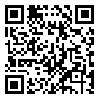Abstract: (65 Views)
Introduction: The Teachers' :union: is one of the active actors in the field of education in Iran. In this article, by referring to the lived experience of a sample of :union: activists in their position in the field of education, the search for appropriate power in the field of education, school culture, alternative values, and forms of conflict of the Teachers' :union: are identified.
Method: The method of the present research is critical ethnography and the field of study is the members of the teachers' :union: in Sanandaj city, which was conducted with 33 members through purposive sampling and semi-structured interviews.
Findings: According to the narrative of the members of the trade :union:, power has infiltrated the social structure and interactions in the field of education, and to bring teachers into conformity, power is used in "disciplinary", "rewarding" and "conditional" ways, and the school culture has distorted the individual and social identity of teachers by constructing "compliant and committed teachers" and "simple-minded and contented teachers".Teachers feel ignored and regret being teachers due to their absence from the decision-making system, lack of participation in the development of textbooks, and lack of school management. In such a context, restoring the status of teachers, improving their livelihoods, and providing equal and free education have become alternative values for the teachers' :union:, and raising awareness, de-ideologizing the field of education, rejecting the commodification of education, and silent resistance have shaped the forms of conflict within the teachers' :union:.
Discussion: Despite the exercise of power, activists in the field of education resist the mechanisms of conformity, and the formation of teachers' :union:s is a manifestation of resistance in the field of education; a struggle that, based on Axel Hunt, aims to identify and acknowledge the institutional necessity of redefining and reconstructing the rules of the field of education and redefining the position of teachers in the field of education.
Method: The method of the present research is critical ethnography and the field of study is the members of the teachers' :union: in Sanandaj city, which was conducted with 33 members through purposive sampling and semi-structured interviews.
Findings: According to the narrative of the members of the trade :union:, power has infiltrated the social structure and interactions in the field of education, and to bring teachers into conformity, power is used in "disciplinary", "rewarding" and "conditional" ways, and the school culture has distorted the individual and social identity of teachers by constructing "compliant and committed teachers" and "simple-minded and contented teachers".Teachers feel ignored and regret being teachers due to their absence from the decision-making system, lack of participation in the development of textbooks, and lack of school management. In such a context, restoring the status of teachers, improving their livelihoods, and providing equal and free education have become alternative values for the teachers' :union:, and raising awareness, de-ideologizing the field of education, rejecting the commodification of education, and silent resistance have shaped the forms of conflict within the teachers' :union:.
Discussion: Despite the exercise of power, activists in the field of education resist the mechanisms of conformity, and the formation of teachers' :union:s is a manifestation of resistance in the field of education; a struggle that, based on Axel Hunt, aims to identify and acknowledge the institutional necessity of redefining and reconstructing the rules of the field of education and redefining the position of teachers in the field of education.
Keywords: Institutional recognition, Disciplinary power, Restoring the status of teachers, School culture, Teachers', :union:.
Type of Study: orginal |
Received: 2025/03/4 | Accepted: 2025/09/6 | Published: 2025/10/4
Received: 2025/03/4 | Accepted: 2025/09/6 | Published: 2025/10/4
Send email to the article author
| Rights and permissions | |
 |
This work is licensed under a Creative Commons Attribution-NonCommercial 4.0 International License. |





